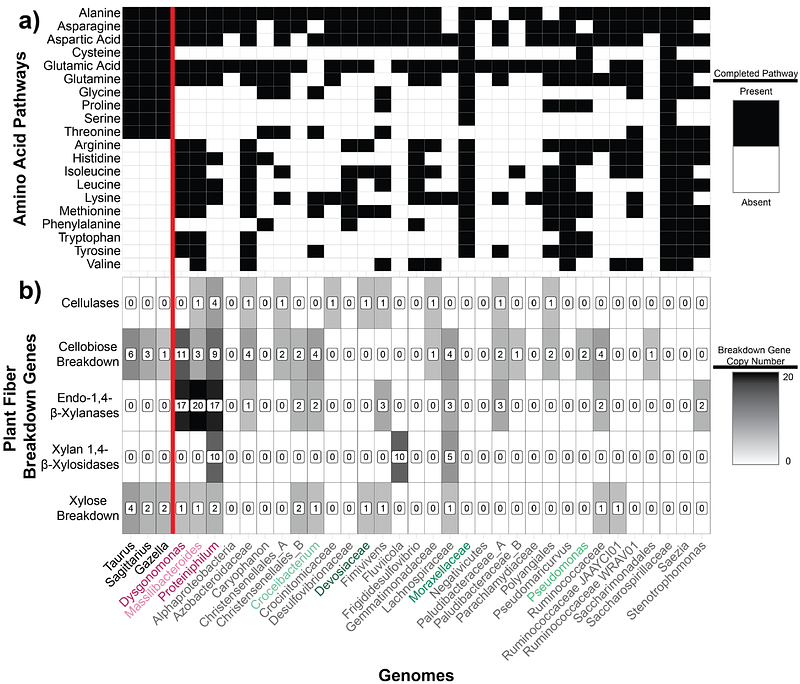The dung beetle microbiome complements host metabolism and nutrition

The dung beetle microbiome complements host metabolism and nutrition
Jones, J. A.; Moczek, A. P.; Newton, I. L. G.
AbstractMany multicellular organisms rely on communities of microbial organisms to properly benefit from their diets, for instance by assisting in the breakdown of complex polysaccharides, the synthesis of essential resources, detoxification, or even preventing putrefaction. Dung beetles commonly rely on herbivore dung as their main source of nutrition, a diet rich in recalcitrant, hard-to-digest plant polysaccharides yet poor in essential amino acids, which animals typically cannot synthesize on their own. The work presented here investigates the potential role of the host-associated microbial community in allowing these insects to thrive on their nutrient-poor diet. Specifically, we investigated if the microbiota of the bull-headed dung beetle, Onthophagus taurus, may be capable of synthesizing amino acids and breaking down complex plant polysaccharides. To do so we functionally annotated genes within metagenomically assembled genomes (MAGs) obtained via shotgun-metagenomic sequencing. The annotation of these MAGs revealed that bacteria found in association with O. taurus possess the metabolic potential necessary to bridge the gap between host metabolic needs and the limitations imposed by their diet. Specifically, O. taurus microbiota contain amino acid biosynthesis pathways and genes encoding cellulases and xylanases, both of which are absent in the beetle genome. Further, multiple functionally relevant bacterial taxa identified here have also been observed in other studies across diverse dung beetle species, possibly suggesting a conserved pool of dung beetle symbionts and metabolic functions.